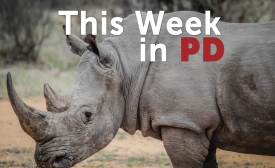china
President Moon Jae-in on Tuesday met with his special envoys and emphasized the need to normalize diplomatic affairs. “The new government inherited grave diplomatic and security circumstances, and summit diplomacy has been put on hold for more than six months. Sending the special envoys is the beginning of summit diplomacy,” Moon was quoted as saying by Cheong Wa Dae spokesman Park Soo-hyun following the president’s meeting with the envoys.
Speaking at a major international conference in Beijing, United Nations Secretary-General António Guterres today drew comparisons between China's 'One Belt, One Road' initiative and the Sustainable Development Goals, saying both are rooted in a shared vision for global development. “Both strive to create opportunities, global public goods and win-win cooperation. And both aim to deepen 'connectivity' across countries and regions...
Aamir Khan may have staged a soft power coup in China. His earthy, grassroots advocacy in Dangal of gender rights, set in semi-urban but aspirational India, has struck an emotional chord with a young, curious, tech-savvy generation of the “Middle Kingdom”.Netizens have already set alight Weibo — the Chinese equivalent of Twitter — with fulsome praise of Mr. Khan, and the breezy, non-condescending, but powerful messaging of his film. One viewer has praised the actor as India’s national treasure.
China is a powerful international actor as the most populous country, the second largest economy, and a significant investor in modernizing its military. With early signs that the United States will emphasize hard power under the Trump administration, China has positioned itself as a champion of globalization and economic integration, perhaps signaling a desire to take on a greater international leadership role. It is doing this by doubling down on soft power, a measure of a country’s international attractiveness and its ability to influence other countries and publics.

This week’s PD News roundup looks at nation branding efforts from Rwanda to North Korea.
Online clips —both geared for external and domestic consumption — has become a popular means for China to promote its policies and its perspective on issues, as part of its still fledgling, and often ham-fisted, soft power. Previous attempts have included aggressively nationalistic rap and cute, catchy tunes about its five-year plan.
Recent news from North Korea has focused on missile launches and nuclear tests. But when it comes to diplomacy, there may be a lesson from history – and sports. Asia Pacific Management consultant Ray Tsuchiyama shares some thoughts in this commentary. [...] Sports makes friends. Like 1971’s Ping-Pong diplomacy, let’s give soccer a chance to create a lasting peace on the Korean peninsula.







